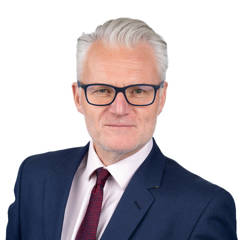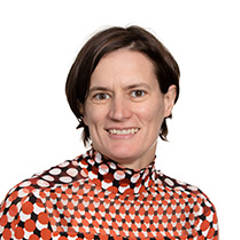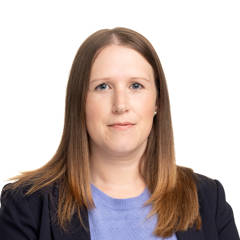-
Our national team are recognised experts in resolving disputes concerning the provision of medical care for healthcare providers. We know that every adverse outcome involves an injured patient and their family and significant personal and financial cost for the staff and organisations providing the care. Drawing on specialist teams of over 60 lawyers across the UK we provide advice on investigating and managing complaints and represent over 70 Trusts and Private health providers across the UK when clinical negligence claims are made. As a Band 1 team in Chambers we manage over 3000 cases at any one time with values from £500 to £50m. Experienced in Alternative Dispute Resolution and Mediation we also have a reputation for the robust defence of unmeritorious claims with a strong track record of cases won at trial in the county court, the high court and the appeal courts.
A fantastic team of specialised lawyers who can be relied upon to provide good advice in a timely manner. It's easy to build a good professional rapport and they quickly learn to understand your needs.
We cover all types of medical treatment including (but not exclusively):
- Accident and Emergency
- Bariatric surgery
- Cardiothoracic surgery
- Cases involving the Human Rights Act
- Catastrophic injury cases resulting in acquired brain injury and/or paraplegia
- Cosmetic and aesthetic surgery and treatment
- Dental claims
- Fertility and gynaecology services
- General Surgery
- Neurosurgery
- Obstetric and neonatal cases valued up to £50 million
- Out of hours GP services
- Orthopaedic and trauma cases from missed fracture to amputations
- Ophthalmology
- Prison healthcare
- Transplant surgery
- Wrongful birth cases
The latest Clinical Negligence news and articles can be found at Bevan Brittan's Insight Information Hub
-
We work with NHS and private health providers across the UK and internationally and have been a member of NHS Resolution's clinical negligence panel since 1996.
The team are a real pleasure to deal with, always on top of every detail that matters and incredibly well-prepared, as well as respectful and sympathetic.
Our work includes:
- The investigation and advice on complaint
- Drafting Letters of Response under the Pre-Action Protocol for Clinical Negligence
- Undertaking preliminary expert and witness investigations
- Managing litigated cases under delegated authority
- Directly managing cases from letter of claim to trial in all courts
- Preparing and conducting mediation
- Negotiating the resolution of cases directly and using counsel
- Risk management advice including advising on opportunities to learn from claims and improve patient safety
- Training on legal issues and their practical implications
Providing a first class service is not only about experience of claims but also expertise. Many of our lawyers are individually recognized as leaders in the field. In working to resolve medical disputes, we aim to be tenacious, thorough and commercial to provide the best results whilst recognizing the personal impact of a dispute on all those involved. We believe in a personal service that is designed to achieve the best outcome.
We draw on an extensive database of experienced medico-legal experts and counsel and our experience and expertise means that we are adept at identifying those cases which should be settled and those that should be defended an early stage.
-
Our work is sensitive and many cases are resolved without litigation. In other cases where the evidence is disputed cases will proceed to trial. We operate at the forefront of developments in clinical negligence law and have taken many cases to trial and to the appeal courts.
Examples of significant reported cases include:
- Williams v Bermuda Hospitals Board [2016] UKPC 4 where the Privy Council were invited to provide guidance on material contribution.
- Timothy Owers v Medway NHS Foundation Trust [EWHC 2363] (QB) which addresses both legal causation in stroke cases and secondary victim claims for nervous shock.
- Winspear v City Hospitals Sunderland NHS Foundation Trust [2015] EWHC 3250 (QB) where the court was asked to consider what the nature and extent of the duty to consult with the family of an incapacitated adult when putting a "do not resuscitate" order in place.
- Mulholland v Medway NHSFT [2015] EWHC 268 where the court considered the duty of care required of doctors in Accident & Emergency.
- Brock v University Hospitals Birmingham NHSFT [2014] EWHC 4244 where the court considered the elements of psychiatric injury necessary to found a Secondary Victim claim.
- KW v T (1) & M (2) v a Private Hospital Cosmetic surgery where the court provided guidance on the issue of informed consent and what constituted an appropriate "cooling off" period prior to breast augmentation and liposuction.
Legal Insights

Bevan Brittan strengthens expertise with specialist planning partner hire in Birmingham
06/06/2025
View all News





































